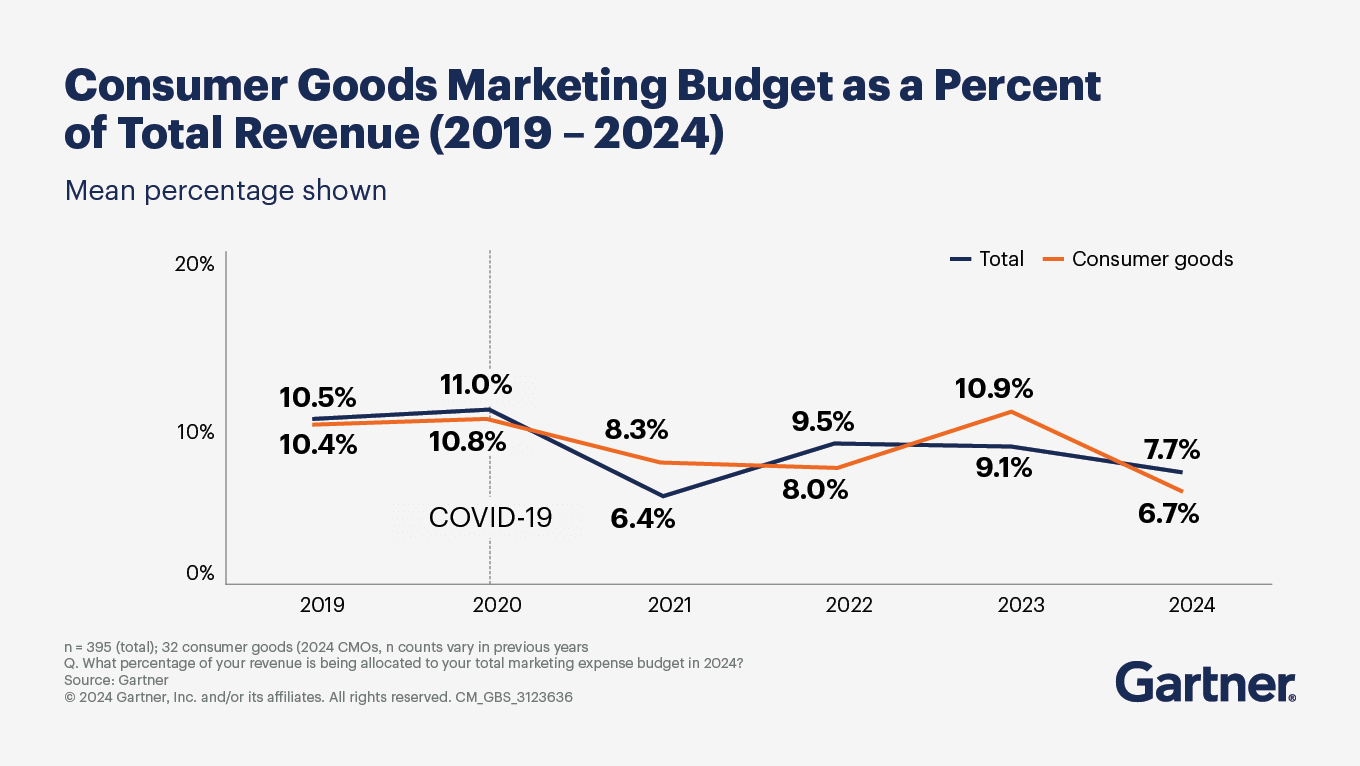Benchmark your CPG marketing spend with insights from the Annual Gartner CMO Spend Survey
- Gartner client? Log in for personalized search results.
CPG marketing budget has dropped to 6.7% of total revenue in 2024, the lowest in 5 years.
To achieve growth objectives, consumer products-focused CMOs must drive increased productivity amid budget pressures. The latest Gartner CMO Spend Survey found that consumer products CMOs are prioritizing marketing productivity with more attention being placed on MarTech.
Download the CPG marketing benchmarking report to:
- Benchmark your spend across resources, channels, and programs
- Contextualize CPG marketing budget plans
- Discover strategies to maximize ROI in a constrained budget environment
About CPG Marketing
CPG marketing, or Consumer Packaged Goods marketing involves the strategic promotion and communication of industry-specific content and resources through various channels, including websites, social media, paid advertising, SEO, email marketing, video, and more. CPG brands, suppliers, and service providers utilize these mediums to attract consumers, guide them through the purchasing process, and maintain their engagement.
For CPG-focused CMOs, mastering these strategies is crucial to effectively navigate the competitive landscape, optimize budget allocations, and drive meaningful consumer interactions.
As B2C buyers increasingly rely on digital channels to make informed decisions, CPG brands must advance their digital marketing strategies and purchase guidance. This includes improvements in SEO, investments in site functionality, and upgrades to guided selling, positioning their companies for growth and defending against competition.
Download the CPG marketing benchmark report above to gain actionable insights and strategies for navigating current challenges and optimizing your marketing efforts.
CPG Marketing FAQs
What does CPG marketing mean?
CPG marketing, or Consumer Packaged Goods marketing, refers to the strategies and tactics used by companies to promote and sell products that consumers use on a daily basis and need to replace frequently. These products include items such as food, beverages, toiletries, and cleaning supplies. Effective CPG marketing involves a deep understanding of consumer behavior, leveraging data analytics, and employing omnichannel strategies to reach consumers at multiple touchpoints.
What is CPG vs FMCG?
CPG focuses more on the consumer experience and branding, whereas FMCG emphasizes the rapid sale and turnover of low-cost products.
